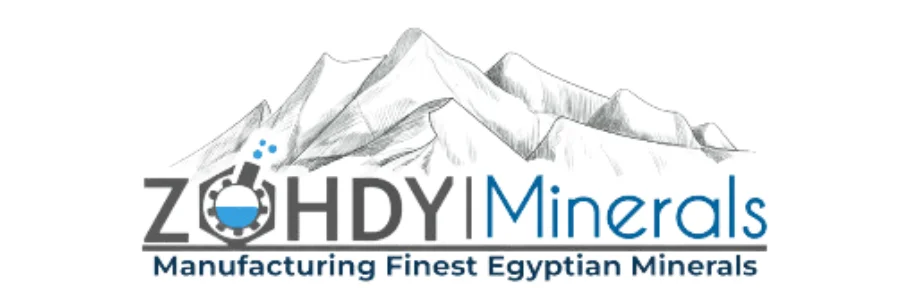Important Uses of Limestone Granules (2-3 mm): Enhancing Water Quality and Beyond
Limestone granules (2-3 mm) are a versatile material with numerous important uses across various industries. Known for their uniform size and high purity, these granules serve a multitude of purposes, from water treatment to agricultural applications. In this article, we’ll explore the significant uses of limestone granules (2-3 mm) and delve into how they contribute to improving water quality, soil health, and more.

Introduction to Limestone Granules (2-3 mm)
What are limestone granules?
Limestone granules (2-3 mm) are small particles of limestone with a diameter ranging from 2 to 3 millimeters. They are typically produced by crushing and screening limestone rocks to achieve the desired size range. These granules are prized for their consistency in size, high calcium carbonate content, and excellent solubility, making them suitable for various applications.
Properties of limestone granules
Limestone granules (2-3 mm) exhibit several key properties that make them valuable across different industries. They have a neutral pH, high reactivity, and low abrasiveness, making them ideal for use in water treatment, agriculture, and environmental remediation. Their controlled size distribution ensures uniform performance in diverse applications.
Applications of Limestone Granules (2-3 mm)
Limestone granules (2-3 mm) find important uses in several industries, each harnessing their unique properties for specific purposes. Let’s explore some of the most significant applications:
Water treatment
One of the primary uses of limestone granules (2-3 mm) is in water treatment. These granules act as a pH adjuster and buffer, helping to neutralize acidic water and stabilize pH levels. They effectively remove impurities, such as heavy metals and pollutants, improving water quality for various purposes, including drinking, industrial processes, and agricultural irrigation.
pH adjustment
Limestone granules 2-3 mm are added to water treatment systems to raise pH levels and reduce acidity. This helps prevent corrosion in pipes and equipment, ensuring the longevity of infrastructure and maintaining water quality standards.
Heavy metal removal
The high reactivity of limestone granules (2-3 mm) enables them to adsorb heavy metals like lead, cadmium, and copper from water sources. This reduces the risk of contamination and ensures compliance with environmental regulations.
Agricultural applications
In agriculture, limestone granules (2-3 mm) are used as a soil amendment to adjust pH levels and improve soil structure. They neutralize acidic soils, providing essential calcium and magnesium nutrients for plant growth. Additionally, limestone granules enhance soil moisture retention and promote nutrient absorption, leading to healthier crops and higher yields.
Soil pH adjustment
Acidic soils can hinder plant growth and nutrient uptake. By incorporating limestone granules (2-3 mm) into the soil, farmers can raise pH levels and create a more favorable environment for plant growth. This improves soil fertility and crop productivity, contributing to sustainable agriculture practices.
Nutrient availability
Limestone granules (2-3 mm) release calcium and magnesium ions into the soil, enhancing nutrient availability for plant roots. This ensures optimal nutrient uptake and promotes healthy root development, leading to stronger and more resilient crops.
Environmental remediation
Limestone granules 2-3 mm play a role in environmental remediation projects, particularly in mitigating soil and water pollution. Their ability to neutralize acidity and adsorb contaminants makes them effective in restoring ecosystems affected by industrial activities, mining operations, and urban runoff.
Acid mine drainage treatment
Limestone granules 2-3 mm are used to treat acid mine drainage, a common environmental issue in mining areas. They neutralize acidity and precipitate heavy metals, reducing the harmful effects of acidic runoff on aquatic ecosystems and groundwater quality.
Contaminant immobilization
In contaminated soil and water remediation projects, limestone granules (2-3 mm) can immobilize pollutants through adsorption and precipitation reactions. This helps prevent the spread of contaminants and allows for the restoration of natural habitats and waterways.
Advantages of Using Limestone Granules (2-3 mm)
Utilizing limestone granules (2-3 mm) offers several advantages across different applications, making them a preferred choice for many industries:
Effective pH adjustment
Limestone granules (2-3 mm) provide efficient pH adjustment in water treatment and soil remediation applications, ensuring optimal conditions for biological processes and chemical reactions.
Nutrient supplementation
The calcium and magnesium content of limestone granules 2-3 mm enhances soil fertility and provides essential nutrients for plant growth, promoting healthier crops and increased yields in agriculture.
Environmental sustainability
By promoting soil health, improving water quality, and mitigating pollution, limestone granules 2-3 mm contribute to environmental sustainability and
To order send us






